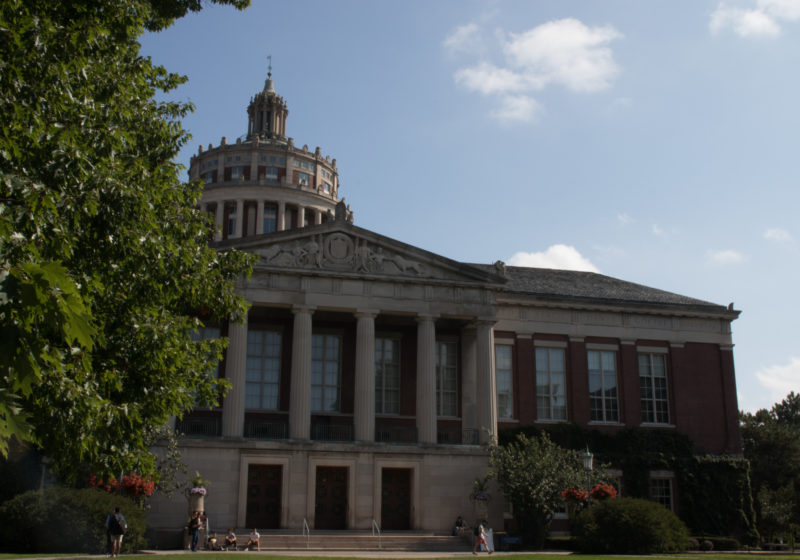A new report has found that University’s economic reach in the greater Rochester region has more than doubled in the last 14 years. The report, conducted by the Center for Governmental Research (CGR), is commissioned by the University every two years for the objective information UR can provide to stakeholders. CGR analyzes data both at the state and local levels.
The University is the largest employer based in Upstate New York and the seventh-largest private employer in the state, according to 2019 data.
This impact as the largest employer has been further analyzed in a series of biennial assessments of employment and payroll, capital expenditures, purchasing, student and visitor spending, and tax impact of UR, UR Medicine, and its affiliates.
In an interview with the Campus Times, Vice President of GCR Peter Robinson, said that when looking at the report’s data, it brings public awareness and serves as a background for what the “University is looking to do that requires support.”
“We do that through the jobs we create […] when we purchase from the community, putting money and jobs into the community.”
According to the report, the University purchased goods and services totaling approximately $1.3 billion in 2019. Additionally, over the past five years, UR has averaged about $324 million annually in capital investment spending.
However, the general history of Rochester and the University’s relationship with the surrounding city — especially neighborhoods such as the 19th Ward where many of its employees reside — has proved challenging. Gentrification, racism, a lacking public grade school education system, and transportation among other issues have continued to be topics of conversation for students, staff, and faculty.
Robinson responded to this concern as well, expressing that the University is doing its best to hire workers from the community and ensure that they’re compensated and treated fairly. “Our investment is in our people,” he said. The movement towards raising the minimum wage is one of the University’s initiatives to commit to a positive impact on its employees, although Robinson also expressed a challenge in recurring investment.
“When you’re short-staffed, the people that are here are more stressed, working more hours, and the pace is faster,” Robinson said on the dining staff shortage. He said that UR is doing its best to fill positions via competitive wages, hours, and benefits packages.
Lack of public transportation and a general shortage of staff after the pandemic are Robinson’s reasons the dining problem is occurring. Even so, Robinson says it’s that much more important the University “creates opportunity for future job opportunities” and supports employees in educational benefits.



